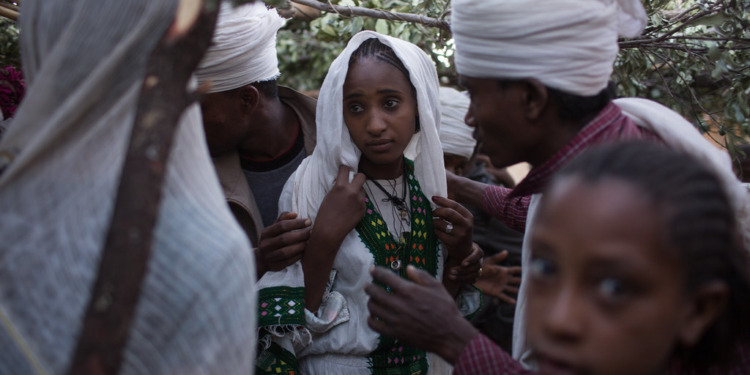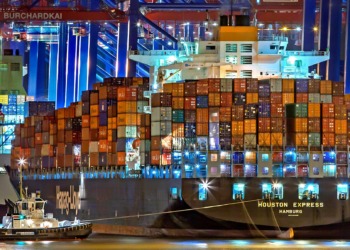Catherine Russel, UNICEF’s executive director, warns that local authorities have registered “dramatic” increases in child marriage across the drought-afflicted areas of Ethiopia, where “desperate” parents push their girls into early unions hoping that dowries from the husband’s family will help them survive another day.
The Horn of Africa is currently suffering from the worst climate-induced emergency in 40 years, pushing 14 million people to hunger over regions including Kenya, Somalia, Djibouti, and parts of Ethiopia.
“These people [have their daughters married] because they’re desperate for one reason or another: they’re afraid of violence; they’re afraid for the safety of the girls; they need resources, they can’t afford to feed them,” Russel says.
Citing the local government data they received this week, UNICEF announced that cases of child marriages have nearly quadrupled across the six drought-affected areas known in the vast region of Oromia: 2,282 cases were recorded in the six months period from last September to March this year, compared to 672 cases registered last year between February and August.
In the East Hararghe zone alone, which counts a population of 2.7 million, rates of child marriage have leapt by 51%, from 70 registered over a six-month period in 2020-21 to 106 in the same period a year later.
The drought is threatening to set Ethiopia back in its long-term efforts to fight child marriage, which president Sahle-Work Zewde described as a priority area of her politics: in 2019, Ethiopia’s Ministry of Women had received technical and financial support from UNICEF to produce a National Roadmap to End Child Marriage and Female Genital Mutilation, set to achieve its goals for 2024.
The country’s child marriage rates are amongst the highest in the world: according to demographic data from 2016, 40 percent of Ethiopian girls are married before their 18th birthday, and 14 percent marry before they turn 15.
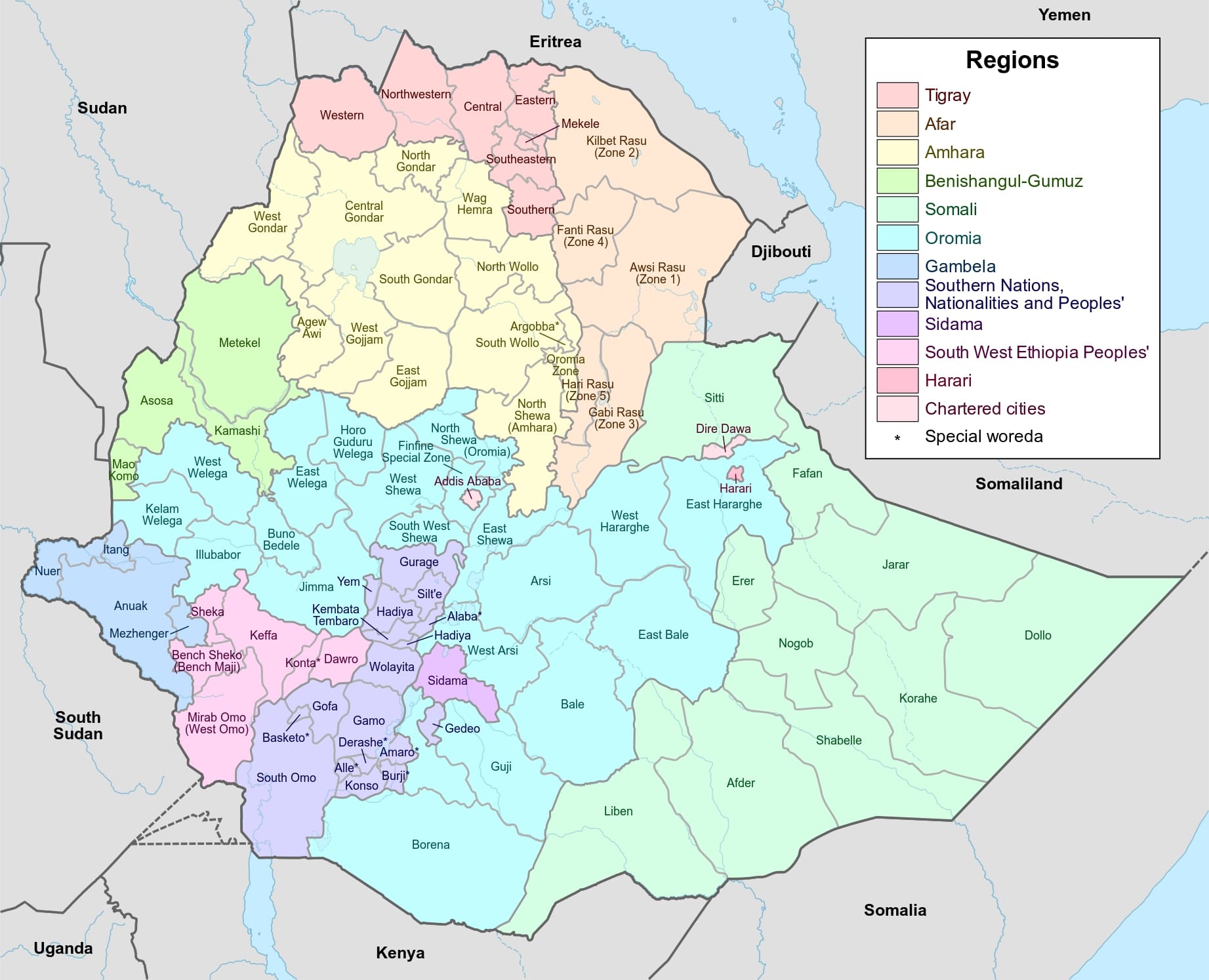
As civil war in northern Ethiopia and fallout from conflict in Ukraine exacerbate the risks of famine, gender-based violence is on the rise
Child marriage is only one element in a wider context of soaring rates of gender-based violence as Ethiopia has been plagued by civil war for more than a year, resulting in thousands of deaths and the mass displacement of more than two million people.
The civil war also created a widespread and severe lack of food in the besieged areas North of Ethiopia months before the drought was announced.
The civil war opposes the forces of Ethiopian Prime Minister Abiy Ahmed, which comprise the Ethiopian military, ethnic paramilitaries and allied troops from neighbouring Eritrea, to the Tigray People’s Liberation Front, or TPLF, an ethnicity-based political party which ruled over Ethiopia for 27 years from 1991 to 2012.
The people of Tigray, a region situated in the north-western part of Ethiopia, constitute an ethnic minority making up 7 percent of Ethiopia’s overall population.
Following the start of the war in November 2020, numerous cases of war crimes and crimes against humanity, including massacres, summary executions, torture, and what the UN Human Rights Council coined “rape as a weapon of war” have been reported.
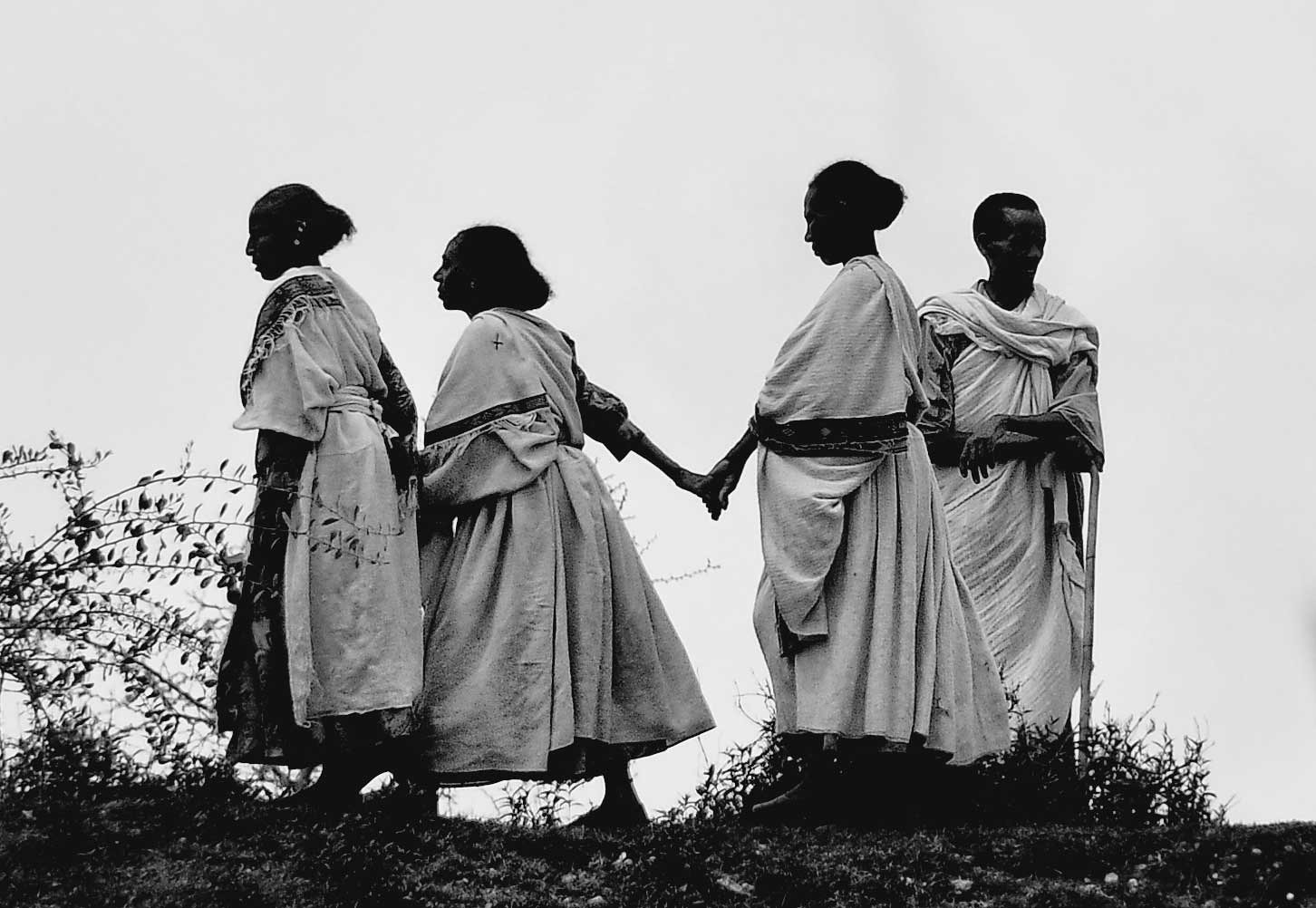
While the evidence gathered by human rights activists accuses all warring parties, reports by Amnesty International and Human Rights Watch account for the particularly brutal treatment of Tigrayan women and girls by troops fighting in support of the Ethiopian government, who resorted to sexual violence as part of a campaign of ethnic cleansing in Tigray.
Violence against women and girls was made worse by a severe lack of food as the Ethiopian government blocked roads to Tigray for months, denying humanitarian organisations access to the region.
According to an assessment in January 2022, at least two million people in the north of Ethiopia already suffered from an extreme lack of food. At the start of last month, a “humanitarian truce” finally allowed aid convoys from World Food Programme (WFP) to enter the area.
The start of the war in Ukraine in February 2022, the ensuing rise in food prices, and the announcement of the drought in April all came to exacerbate conditions of severe food shortages, provoking further mass displacement and endemic violence.
Related articles: Worst Drought in Forty Years Pushes East Africa to the Brink of Famine | West Africa Hit by Worst Food Crisis in a Decade: 38 Million People Could Go Hungry by June | The Global Goals: Including Marginalised Women Conflict Survivors
Child marriage, or the annihilation of a girl’s future
It isn’t just the lack of food and resources which causes families to marry their underage girls. An extremely volatile and hostile context understandably leads parents to fear for their daughters’ physical safety as well. By pushing them into early marriage, they are not only hoping for some money and a stay of starvation, but for their girls to be looked after by the husband’s family and protected from violence.
Unfortunately, child marriage does exactly the contrary, and numerous investigations by international organisations have uncovered links between child marriage and steep increases in gender-based violence.
As early marriages force girls to leave their families and homes, social isolation and confinement to their new home mean they are more vulnerable to domestic violence.
Child marriage almost always results in girls being forced to interrupt their education since their new status as a wife comes with heavy housekeeping duties and puts them at higher risk of early pregnancies.
“It really cuts off all of their opportunities and ends up in a situation where they are more likely to start having children early; they are more likely to have children closer together; they’re young, so they’re not in a position to negotiate safe sex with their partners. It’s just one problem after another for these girls,” said Russell, UNICEF’s executive director.
She described the consequences of child marriage on girls as “debilitating,” and pointed to the fact that about 600,000 children are thought to have already dropped out of school because of the drought.
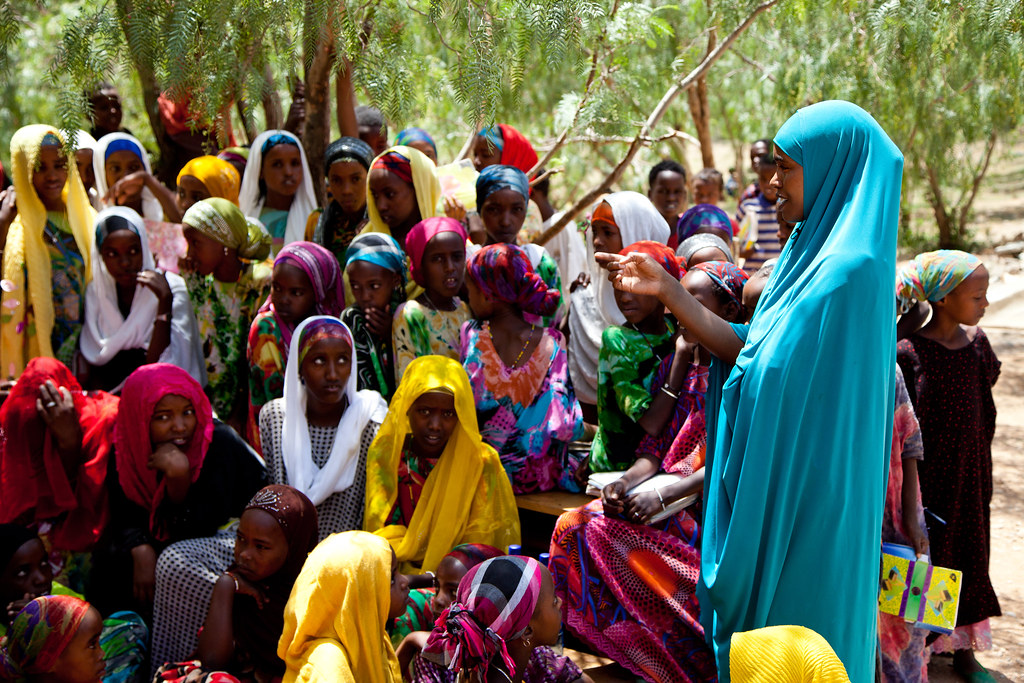
Picking up on the concerns that have resounded amongst the humanitarian community, which fears that the war in Ukraine is drawing media attention and funds away from equally important issues, Russell called for urgent action on the part of the international community.
“I have been to that region, and I know how difficult it is there. I don’t begrudge anybody in Ukraine the coverage, because they need resources as well, but I think the international community’s not great at doing two things at once,” she said.
UNICEF’s emergency drought appeal for the Horn of Africa has a $250m target. Last January, the UK government made a £17m pledge, which Russell, while welcoming with gratitude, describes as insufficient.
Gender-based violence such as it happens in times of crisis has long been sidelined as collateral and inevitable damage.
Thanks to the relentless work of humanitarian activists over the past decades, the international community and the media are now not only aware of what conflict implicates for the safety and integrity of women and girls but show genuine concern for the cause.
By spreading awareness and knowledge of the topic, they contribute to diminishing the impact harmful stereotypes have against victims and encourage many survivors to come forward.
It is imperative that the effort to fight against gender-based violence in times of crisis, which received tremendous momentum in 2018 when the humanitarian works of Yazidi anti-rape activist Nadia Murad and Congolese gynaecologist Denis Mukwege culminated in a joint Nobel Peace Prize award, should be aimed to protect all women and girls – not just European populations.
Editor’s Note: The opinions expressed here by Impakter.com columnists are their own, not those of Impakter.com — In the Featured Photo: Zewde Fentaw dances during her wedding ceremony in Shumshah kebele, Lasta Woreda, Ethiopia, 30 January 2015. Zewde’s family claim she is 19 but she may be much younger which would make the wedding illegal according to Ethiopian law. Featured Photo Credit: UNICEF Ethiopia/Flickr.


